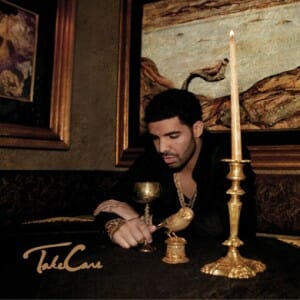Introducing Endless Mode: A New Games & Anime Site from Paste
He probably wouldn’t admit it, but Drake’s stardom was pretty predictable: A good-looking Torontonian with an ear for beats and a willingness to embrace his middle-class origins—almost matching Kanye in self-involved soliloquies and dedication to transcendent pop ambitions. He was a few famous friends away from being an icon; once Lil Wayne stepped in you got the feeling that his destiny was already written.
Take Care arrives as the penultimate hip-hop blockbuster of the year, behind Rick Ross’ looming God Forgives, I Don’t. By most accounts, it’s been a pretty awful critical year for chart-bound releases, with established acts either fumbling (Tha Carter IV) or offering flossy diversions (Watch the Throne) and upstarts like Big Sean, J. Cole and Wale not leaving much of a lasting impression. People started looking towards Drake with the same breathy anticipation that was offered towards My Beautiful Dark Twisted Fantasy this time last year, and for good reason. It’s rare a pre-release leak as quietly gorgeous as “Marvins Room” trickles out, and Drake has proven he knows the components to a good record with last year’s Thank Me Later. He’s a guy you can trust to at least attempt to be seminal, which is actually a rare perk in the rap realm.
To clear the air, Take Care is not brilliant. It certainly is impressed with itself, and sometimes rightfully so—but this will not go down as Drake’s opus. It is however, one of the quietest affirmations of confidence the scene has ever seen. “Marvins Room” was not a specific exception; the record smolders in the same auburn glow: downtempo bass-pulses, dulled synths, tinkering, unattached pianos, and Drake’s feathery voice. It’s sexy, progressive, and surprisingly listenable for its hefty 80 minutes.
In fact “Over My Dead Body” is one of the calmest, most wistful openers in rap history. A few simple, James Blake-ian chords, a faraway drum, and Drake in full loosened-tie mode—tossing hearty punchlines like he’s already on a comfortable slope. He doesn’t sound nearly as cheerful for the next 16 songs; after a brief recess of being a traditional irreverent MC, everything starts to submerge into themes of doubt, soured romance, and the dark sides of fame. He sings his own hooks, shares spare details, drunk-dials, apologizes, and generally seems discontent. Glimpses of a radio-jam are starkly shadowed over by the dour meditations.
If that all sounds relentlessly inner-directed, it’s because it is. The stories Drake is telling are first and foremost about him—secondary, universal appliances are unintentional side-effects. However this is not a bad thing; like Kanye, his solipsism can be fascinating, especially considering his willingness to explore some uncomfortable regions. The sparse title track has him trading ice-cold verses with once-girlfriend Rihanna, which may or may not be self-representing. In the nervy, fashionable (and kinda aimless) “Cameras/Good Ones Go” he pleads “come and find me /just to tell me that I haven’t changed,” on the aforementioned grimness of “Marvins Room” he actually weaves clips of a misguided, early-a.m. phone call into the track’s steady, gentle oscillations. At one point he sighs “I’ve had sex four times this week I’ll explain /having a hard time adjusting to fame,” Drake’s a capable enough person to understand the everyman snickers that surround a statement like that, but he bares it all anyway, mostly for the better.
The production is the real standout here, particularly the work of frequent-collaborator/secret-weapon Noah “40” Shebib. He brings an arsenal of stripped-down lullabies, in equal parts ‘90s trip-hop austerity and the genuine beauty of Eno ambient passages. In the same way Clams Casino’s hazy instrumentals found an audience with non-traditional rap-fans, it’s easy to predict 40’s dulcet voyages catching on.
That is not to say Take Care fails to rock out. A particularly smoky middle-suite brings together four obvious single-options in “Underground Kings,” “We’ll Be Fine,” “Make Me Proud,” and “Lord Knows.” The last one absolutely demolishes the competition with an utterly ridiculous world-destroying effort from Just Blaze. He doesn’t do anything fancy, rather opting to fill up the mix with a bloodthirsty choir and let the results tumble out. Naturally Rick Ross gets the feature slot.
But honestly those moments can almost come off like commercial-concessions in regards to the rest of the album. Not that they’re bad, but they don’t march to the same sleepy beat. Take Care is for the Drake you see on its cover: eyes closed, worn-out and sitting in an uncomfortable looking chair. He is not the best singer in the world, and certainly not the best rapper—but his desire to be upfront in his lyrics and distinguished in his music has made him an iconoclastic star. It’s hard to think of someone in the Billboard realm with the same power to surprise musically, not aesthetically—Drake keeps us guessing. The ambitions and equal-footed narratives cackling within Take Care are worthy of the fame he’s trying to grapple with.
